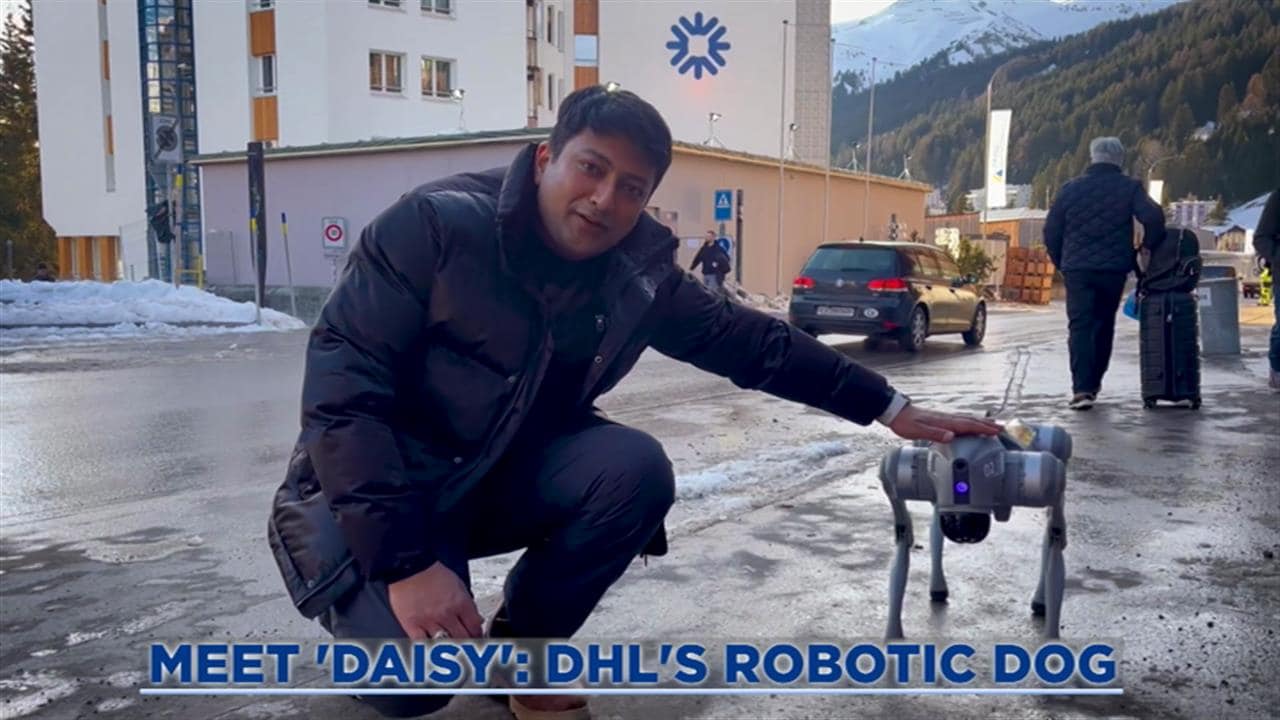

- Home/
- Top Stories/
- Evacuation Train, Service Dogs, Medical Aid: Swiss Army Leaves No Stone Unturned For Davos Security
Evacuation Train, Service Dogs, Medical Aid: Swiss Army Leaves No Stone Unturned For Davos Security

Jannik Plump wanted to join the military but he suffered a severe concussion while playing ice hockey a few years ago, but that didn't deter him from his goal.
He joined civil defence and now helps the Swiss Army in setting up an evacuation train for any eventuality in this Swiss ski resort town during the five-day World Economic Forum Annual Meeting beginning Monday.
Plump is one of the thousands of security personnel on duty, including up to 5,000 from the Swiss Army and hundreds of police men and women, who have made this small town into a fortress to ensure safety of thousands of leaders from across the world for this one week.
The evacuation train set up by 26-year-old Plump will be used in case the streets are not passable and the injured need to be transported from the site.
Similarly, there is Gil Roach, a sergeant and a deputy platoon commander. He and his team have constructed grids and platforms and they have support from sappers, ramp pontoons and rescue soldiers, if needed.
While Davos has not seen any major security issue in over 50 years of hosting the WEF meeting, insiders say that the military cog has always been the best here when it comes to coordinating between various units.
In the case of Roach, he is also a native of Davos and as a child he always wanted to serve the WEF in military uniform when he saw soldiers working round the clock. Now, this 21-year-old is living his childhood dream.
Among other installations set up by the military here, the 'San Hist' is established if a plane crashes over Davos or another major accident occurs, such as a terrorist attack.
As the Davos hospital can be quickly overwhelmed in such a scenario, immediate support is provided by the army and its specialists, who have set up an inspection and rescue centre for that purpose.
Service dogs are also supporting the army men and women in their security efforts.
According to the Swiss Army, they started work before Christmas for the WEF meeting and the government provides for up to 5,000 personnel to be deployed between January 10-26.
In the assistance service, members of the army are authorized to use coercive police measures to fulfill the respective orders.
The Air Force is responsible for security in the airspace. In addition to the air policing service, it also carries out surveillance flights and air transports of persons protected under international law on behalf of the federal government.
With permanent patrolling, armed fighter jets during the conference times, ground-based air defense, additional radars, increased airspace surveillance and air police service around the clock (throughout Switzerland), security in the airspace is guaranteed, the Swiss government said.
This in close cooperation with the partners from Austria and Italy.
Restrictions for the airspace above Davos will be in place till January 21, a day after the meeting ends.
Approaches and departures to the regional airports and heliports are based on special rules and procedures that were developed by the Air Force in cooperation with the Federal Office for Civil Aviation (FOCA). All flights require a permit.
(Except for the headline, this story has not been edited by NDTV staff and is published from a syndicated feed.)












